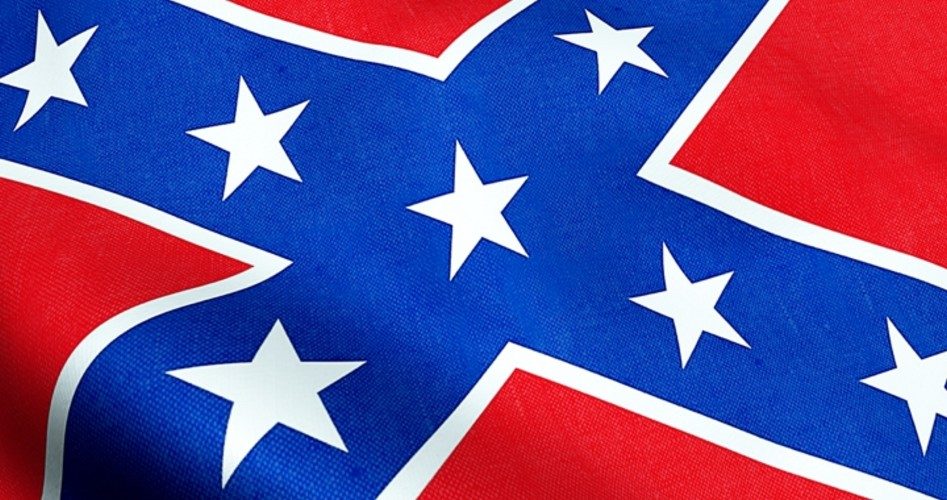
Casey Bloys, HBO’s president of programming, has announced a new dramatic series, Confederate, with both David Benioff and D.B. Weiss as executive producers and screenwriters. Weiss and Benioff were highly successful as the creators of the series Game of Thrones.
While it may not be the intention of Weiss and Benioff, the storyline can be expected to perpetuate some prevailing myths about the Civil War, and its relationship to American slavery. Confederate is in the genre of Alternative History, or Timeline, in which the Confederate States won their independence, rather than being forced back into the Union in 1865.
In this alternative universe, slavery is still legal in the Confederacy, although it has evolved into a modern institution. (Plantation slavery would not be profitable today, so the storyline is that for slavery to still be in existence, slaves would have to be used in ways different from picking cotton, for example.)
The characters in the series will include slave hunters as well as those who are fighting for the freedom of the slaves. Not to leave out attacks upon “capitalism,” there is even a slave-holding corporation.
Bloys expressed pleasure at having a new series to replace Game of Thrones, saying, “As the brilliant ‘Game of Thrones’ winds down to its final season, we are thrilled to be able to continue our relationship with Dan and David, knowing that any subject they take on will result in a unique and ambitious series. Their intelligent, wry and visually stunning approach to storytelling has a way of engaging an audience and taking them on an unforgettable journey. ‘Confederate’ promises to be no exception, and we are honored to be adding the talented team of Nichelle and Malcolm Spellman to the mix.”
Benioff and Weiss explained, “We have discussed ‘Confederate’ for years, originally as a concept for a feature film, but our experience on ‘Thrones’ has convinced us that no one provides a bigger, better storytelling canvas than HBO.”
Benioff was born David Friedman, but changed his name to his mother’s maiden name, so as to avoid confusion with some other writers named Friedman. His father, Stephen Friedman, is the former head of Goldman Sachs. He was born and raised in New York City.
Weiss, on the other hand, was born and raised in Chicago. The two met in Dublin, Ireland, where Weiss was studying Anglo-Irish literature. Three years later they met again in California, and began to collaborate on screenwriting.
Their new series assumes certain things about the Civil War and slavery, and can be expected to perpetuate those assumptions to its audience. First, most Americans today wrongly believe that the Civil War was fought by northern states against southern states so as to abolish slavery. While slavery was certainly a source of friction between the sections in the years leading up to the Civil War, the war itself was precipitated by the secession of seven southern states, in 1860 and 1861, and the response of President Abraham Lincoln.
Lincoln called for 75,000 volunteers to invade those seven southern states and force them to follow federal laws, principally the collection of the tariff, which was the main source of revenue for the federal government at that time. Lincoln did not mention slavery in this call, but the call led four more states to leave the Union, rather than take up arms against fellow states.
Still, even after the secession of 11 total states, four states where slavery was still legal remained in the Union. Had the war really been fought to abolish slavery, federal troops would have been sent into those states as well, in a crusade against the institution of slavery.
But this series perpetuates a second myth about the war and slavery, which is that without the deaths of hundreds of thousands of Americans, and the crippling of hundreds of thousands more, slavery would still exist today. Slavery had once existed in every state, dating back to colonial times. At the time of the adoption of the Constitution, only two states had no slaves at all.
What had happened to them? Was there some bloody civil war in those northern states where slavery died out over the next seven decades?
Of course not. Slavery ceased to exist in states such as New York largely because economic conditions brought on by the Industrial Revolution had led to the point where slavery could be abolished without any significant economic disadvantage. In fact, slavery had gradually grown economically counterproductive in those states.
Even in some slave states such as Virginia, slavery had already grown increasingly less important. Why would this situation in which slavery died a natural death because it was no longer economically feasible not repeat itself in the remaining southern states? After all, they did not utilize slaves in northern factories, so why would they have done so in the south as it industrialized?
Today, it is commonly believed that the Civil War was fought to abolish slavery, and had it not been for that war, it would still exist today, with chattel slaves picking cotton on southern plantations. It is ludicrous, but unfortunately, this series, which will likely be well-done, will only bring new life to that false history.
Photo: Thinkstock



